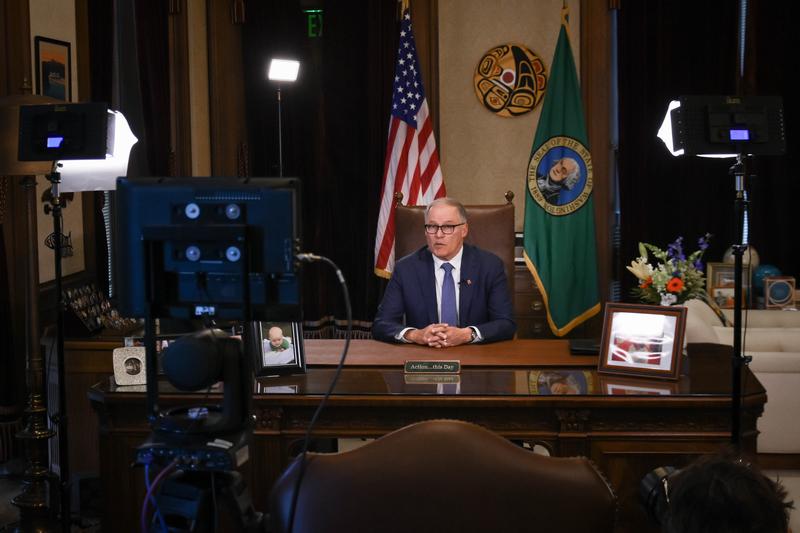
Governor Says Washington ‘Stay-At-Home’ Order May Be Extended Beyond Initial 2 Weeks
Read On
BY LIZ BRAZILE / KUOW
A state order compelling Washingtonians to stay home unless they are partaking in essential work or life activities is now fully in effect until midnight on April 6. (The non-essential business closure lasts until midnight on April 8.)
But Gov. Jay Inslee says people should prepare to stay home for even longer, as officials work to flatten the COVID-19 curve.
Inslee said during a Thursday morning press conference that officials believe mandatory business and school closures have helped mitigate the rate of coronavirus infections, particularly in King, Snohomish, and Pierce counties.
QUICK LINKS:
–What Businesses Are Considered ‘Essential’?
–Guidance For Construction Industry
–What’s Open And What’s Closed In Washington?
Despite this, he added, Washingtonians should expect to see an extension of the state’s unprecedented stay-at-home order.
“We cannot let up on this virus, even if we get to a point where there’s continuation of reducing the rate of increase,” Inslee said, adding that the goal is to see the number of COVID-19 cases drop on a weekly basis.
“But the fact is we have to, we have to hammer this until we can be assured that will not spring back up,” he continued. “And so we will not be able to be confident that we can release some of our joint efforts in the state until we’re very confident of that.”
Inslee pointed to a need for expanded testing capacity amid the efforts to understand how COVID-19 is moving through Washington, and to evaluate the state’s response.
“We need testing — pervasive testing — before we’ll be able … to return to normalcy in our state,” he said.
More than 31,000 COVID-19 tests have been conducted across Washington state so far, according to the governor. But state officials are calling on the federal government to help procure more testing materials.
Inslee also asserted that Washingtonians are not on lockdown under his stay-at-home order.
“You can leave your house for a walk, you can go for a drive, you can do things essential to your livelihood for these essential industries,” he said. “We do want you to limit those activities in ways that make common sense, however.”
Copyright 2020 KUOW. To see ore, visit kuow.
Related Stories:

Intense fire week forces road closures and evacuation notices in WA
Fire crews continue firing wildfires to keep on high alert in the Northwest.

‘We’re just getting started’ | Haaland highlights major salmon recovery effort with $16M investment
U.S. Secretary of the Interior Deb Haaland celebrated with Gov. Jay Inslee, state, local, and Native American tribal leaders break ground at the new passage facility Wednesday, July 24, 2024

Boom Town: New Northwest-made podcast explores Western uranium mining and Hanford downwinders
Creator and host Alec Cowan’s shadow during a tour of the Sunday Mine Complex, a complex of five uranium mines in the Big Gypsum Valley near Paradox, Colorado, on Feb.












